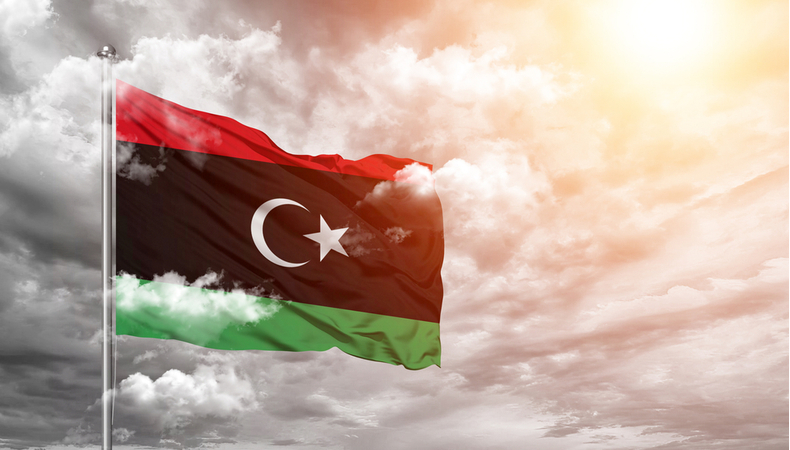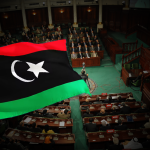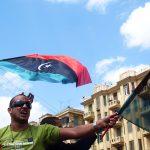Carnegie: The electoral process in Libya has exacerbated divisions and the prospects for stability are becoming more complex


The research center added in a joint article by researchers ‘Frederic Wehrey’ and ‘Imad El-Din Badi’, that Libya has now entered a dangerous new phase in which the possibility of armed conflict between factions may be high, with the possibilities of a real democratic transition evading, according to him.
Alliances to divide power
The Carnegie Center noted that with the elections postponed, prominent political figures who already lead armed groups are trying to outdo each other by forming coalitions to divide power, and this may be manifested through bargaining .
The center said that among the most polarizing of these figures is Khalifa Haftar, who launched an attack on the capital, Tripoli, to overthrow the internationally recognized government and seize power, and Gaddafi’s son Saif al-Islam, who is facing an arrest warrant from the International Criminal Court.
Related Posts
‘Carnegie’ referred to the Prime Minister of the National Unity Government, Abdel Hamid al-Dabaiba, and said that he is trying to stay in power, which raises division and possibly violence between his opponents, and he is maneuvering to establish himself militarily in Tripoli and obtaining popular support by spending money.
The research center said that the other figure is the former Minister of the Interior, Fathi Bashagha, who visited Khalifa Haftar recently. However, this alliance is already facing challenges from many armed groups in western Libya, and this is likely to turn into violence.
The prospects for stability are getting more complicated
The center stressed that the prospects for permanent stability and unity are further complicated by the thousands of foreign fighters and mercenaries, and said that Ankara and Moscow have proven their presence as power brokers on the ground alongside Abu Dhabi and to a lesser extent Cairo, where a détente between former opponents can serve as a control over the outbreak of conflict in 2022.
The Carnegie Middle East Center made it clear that without a clear road map that redefines how Libya restores legitimacy, this “momentary” regional rapprochement will not guarantee long-term stability, noting that armed groups and their political sponsors are benefiting from the current impasse by engaging in multiple tracks.
The involvement of the US administration in the Libyan file
The Center pointed out that the postponement of the elections prompted support for a return to the constitution-drafting process to reset the legal framework for the elections and ensure their legitimacy.
The ‘Carnegie’ Center said that Western powers, especially the United States, need to adapt quickly to the facts on the ground, and added that the US administration also needs to pay attention to the lessons it learned from Libya after the fall of Qaddafi, and engage more resolutely in laying the foundations for a unified civil, democratic state.
This includes strengthening civil society, ensuring the rule of law and accountability, developing a more viable strategy to rein in militias, and most importantly helping Libyans develop a stable and globally agreed legal basis for future elections, either through a constitution or some similar covenant.









